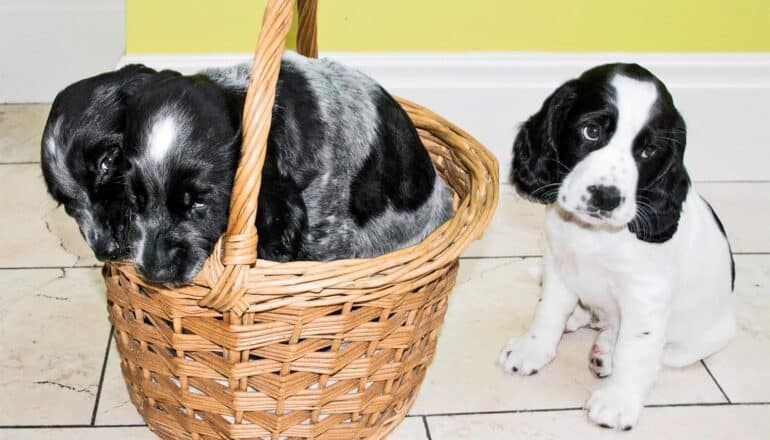
Do animals get jealous like people? Researchers say it’s complicated.
It’s a question that has puzzled thinkers for centuries: Are we humans alone in our pursuit of fairness and the frustration we feel when others get what we want?
In recent years, evolutionary psychologists have suggested that we’re not all that special. Animals, from corvids to capuchin monkeys, express what humans might recognize as jealousy when, for example, they are passed over for a sought-after snack. Many argue this is evidence we are not alone in our aversion toward unfairness.
But the new research makes the case that humans might be unique after all.
Using data from 23 studies of what psychologists call “inequity aversion,” researchers combed through results of more than 60,000 observations involving 18 animal species. In what they says was the “largest empirical investigation of non-human inequity aversion to date,” the team reconstructed data analyses and used a new metric that adds depth to the concept of fairness.
“We can’t make the claim that animals experience jealousy based on this data,” says Oded Ritov, a fourth-year PhD candidate in the University of California, Berkeley’s psychology department. “If there is an effect, it’s very weak and might show up in very specific settings.
“But it’s nothing like what we see in humans in terms of our deep-seated sense of fairness.”
The meta-analysis appears in the journal Proceedings of the Royal Society B.
Ritov, the paper’s first author, studies how human behaviors have evolved, how much of it is baked into our big brains, and what is learned through our complicated cultures. He also researches non-human animals to better understand what makes humans special.
Our sense of fairness in distributing resources may be a key reason we were able to build shelters, share food, and develop more complex societies. To be sure, humans have differing perceptions of fairness. But core to the concept is what psychologists call “inequity aversion,” a disinclination for the unequal distribution of resources and judgments on how things should be shared.
Examples are all around us, as siblings or parents of young children can attest. When one child is given something nicer than the other, outbursts often follow. It’s not just that the youngster didn’t get a toy or treat; someone else did instead. This reaction shows aversion toward inequity.
It’s long been debated just how different that perception of fairness is for non-human animals.
Primatologist Frans de Waal’s landmark study and accompanying viral video of an endearing capuchin monkey lashing out made the case that such animals show an understanding of inequity aversion that’s remarkably similar to that of human children. All was well and good when both monkeys were given a slice of cucumber. But when researchers gave one a grape, the cucumber-munching chimp seemed to grow jealous, flung the cucumber back at the researcher and rattled the cage wall in protest.
De Waal and others say this and subsequent experiments supported the claim that humans are not alone in our sense of fairness. Similar studies on corvids, dogs, and mice have likewise been reported to show inequity aversion.
Ritov says that might be the “straightforward, and perhaps anthropomorphic, interpretation.” But that doesn’t mean it’s the only one.
He says many of these studies have been hampered by a replication crisis that has long plagued psychology and other disciplines. Findings might be compelling, but they’re based on small sample sizes and are difficult to repeat, clouding their broader contributions to science.
“We thought it’d be a valuable contribution to try to pull together as much data as we can on this question and see what kind of pattern emerges with the larger dataset,” Ritov says.
The pattern that emerged after rerunning the data with a new variable suggests the animals weren’t displaying jealousy. They were actually disappointed after expecting a grape based on past research behavior. Follow-up studies elicited similar outrage in monkeys, even when the grapes were placed in an empty cage—where there was no other monkey to be jealous of.
“We think that the rejections are a form of social protest,” Ritov says. “But what animals are protesting isn’t receiving less than someone else. Rather, it seems like they’re protesting the human not treating them as well as they could.”
Perhaps the reaction was never about inequity aversion, Ritov argues. It was about unmet expectations. And that’s something that humans and non-human animals alike can relate to.
Source: Jason Pohl for UC Berkeley
The post Do animals feel jealousy? appeared first on Futurity.
from Futurity https://ift.tt/T7nWSYq
No comments:
Post a Comment